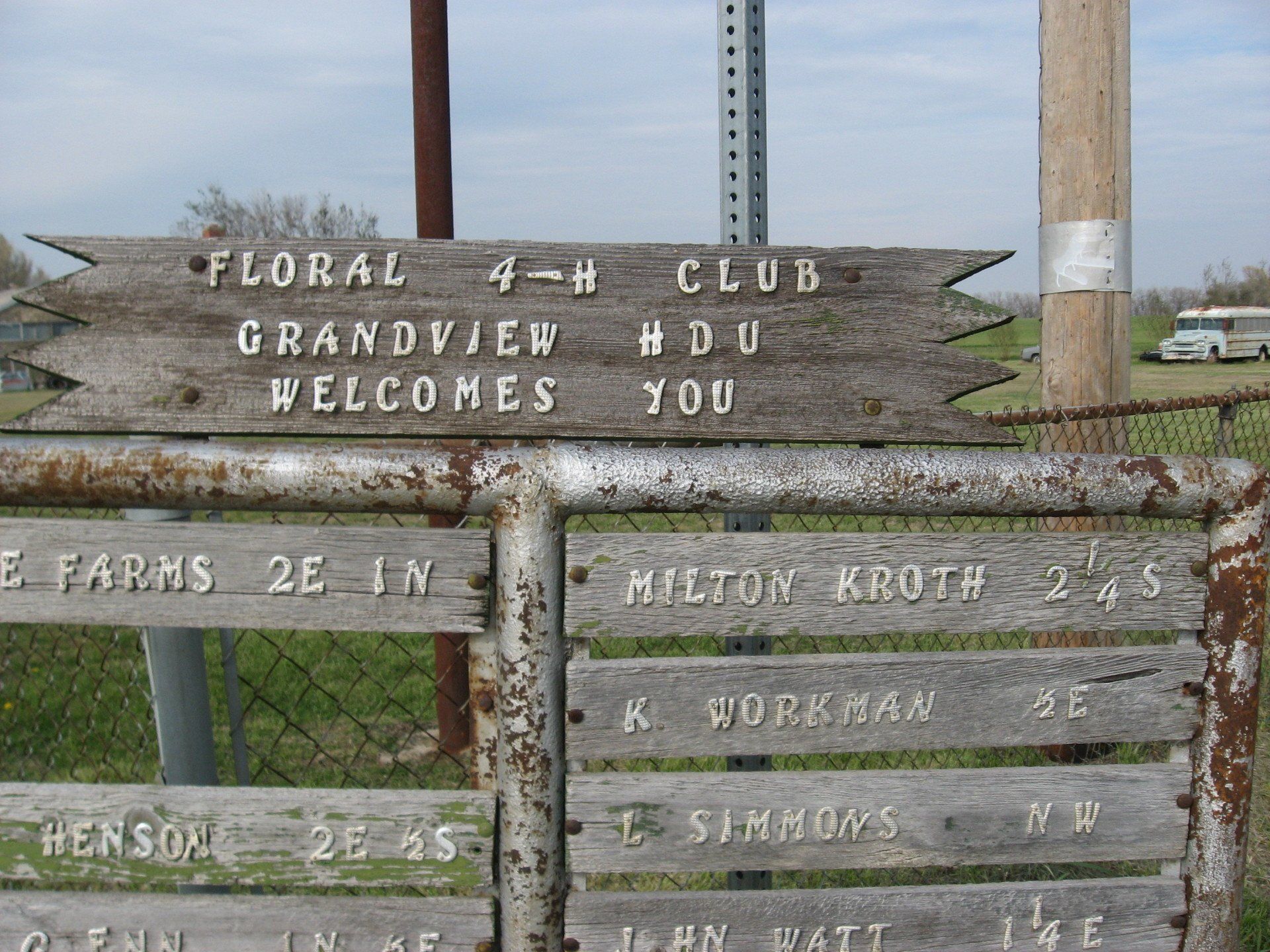Grandpa Milton
"So I'll Cherish The Old Rugged Cross..."

My grandfather was a renaissance man. He was the rare kind of person who could talk in-depth with a college professor and then feel right at home talking about the prospects for this year's crop with a dirt farmer. He read Edna St. Vincent Millay at night and next morning he would be on a tractor plowing before the sun rose. He preached his way through college - three churches at once. And went to seminary in Boston. I can feel the disappointment he must have experienced when he had to leave the dream of becoming a preacher behind when my dad was born. They could no longer afford to go to school.
To survive, the family moved to Lorraine, a small town in Kansas, where he taught school. Each summer he'd bundle up his little family and they would trek up to Northwestern University in Illinois where he finally received his master’s degree in education. From there he went to teach vocational education classes in Michigan and soon became a principal.
He gave up this promising career in education, my Dad told me he could have been a school superintendent, to return again to Kansas. This time he came to run the family farm for his mother-in-law after her husband died, which he did, with my Grandma Hazel, for the rest of his life. I’ve often wondered what he was thinking, how he and she made that decision, and the struggle he likely had when choosing his family over his own bright future.
He loved the soil and seeing things grow. In my mind, he made harvest a metaphor for life - that all good things follow a cycle of preparing, planting, fertilizing, weeding, and then reaping. Through drought and flood, steamy summers and freezing winters.
I remember him out in the fields, crouched down, sifting dirt though his hands, testing it, feeling it. Or gazing up into the sky looking for rain. He was a dryland farmer and the weather could make or break his crop each year. Or taking bales of hay out to hungry cattle on crispy cold mornings just as the sun was rising, with steam coming off the silage he shoveled out for bovine breakfast. If the cattle had licked deep depressions in the white cube of salt he’d left before, he dropped another down.
I remember this strong, wise man as a farmer praying for a kindly and just nature - for like most farmers, he toiled unceasingly. My most vivid memory of my grandfather Milton, though, was listening to him sing in church. The little, white clapboard Grandview Church. A Methodist, he belted out songs like The Old Rugged Cross.
There is so much more to say about Grandpa. He’ll be the perfect example, one day, when I’m trying to describe the best role model I know of for a person of integrity, honesty, and sacrifice. For a person of deep faith, virtuous living, and love of his family, always putting it before his own aspirations. For a profound leader, with character, and care-act-er.
“On a hill, far away, stood an old rugged cross…” (I can hear him singing it now.) “…
The emblem of suff'ring and shame…”
---------------------
The Old Rugged Cross, Wikipedia
"The Old Rugged Cross" is a popular hymn written in 1912 by evangelist and song-leader George Bennard (1873–1958)…George Bennard was a native of Youngstown, Ohio, but was reared in Iowa. After his conversion in a Salvation Army meeting, he and his wife became brigade leaders before leaving the organization for the Methodist Church. As a Methodist evangelist, Bennard wrote the first verse of "The Old Rugged Cross" in Albion, Michigan, in the fall of 1912 as a response to ridicule that he had received at a revival meeting.”
On a hill far away, stood an old rugged Cross
The emblem of suff'ring and shame
And I love that old Cross where the dearest and best
For a world of lost sinners was slain
So I'll cherish the old rugged Cross
Till my trophies at last I lay down
I will cling to the old rugged Cross
And exchange it some day for a crown
Oh, that old rugged Cross so despised by the world
Has a wondrous attraction for me
For the dear Lamb of God, left His Glory above
To bear it to dark Calvary
So I'll cherish the old rugged Cross
Till my trophies at last I lay down
I will cling to the old rugged Cross
And exchange it some day for a crown
In the old rugged Cross, stain'd with blood so divine
A wondrous beauty I see
For ’twas on that old cross Jesus suffered and died
To pardon and sanctify me
So I'll cherish the old rugged Cross
Till my trophies at last I lay down
I will cling to the old rugged Cross
And exchange it some day for a crown
To the old rugged Cross, I will ever be true
Its shame and reproach gladly bear
Then He'll call me some day to my home far away
Where His glory forever I'll share
So I'll cherish the old rugged Cross
Till my trophies at last I lay down
I will cling to the old rugged Cross
And exchange it some day for a crown











